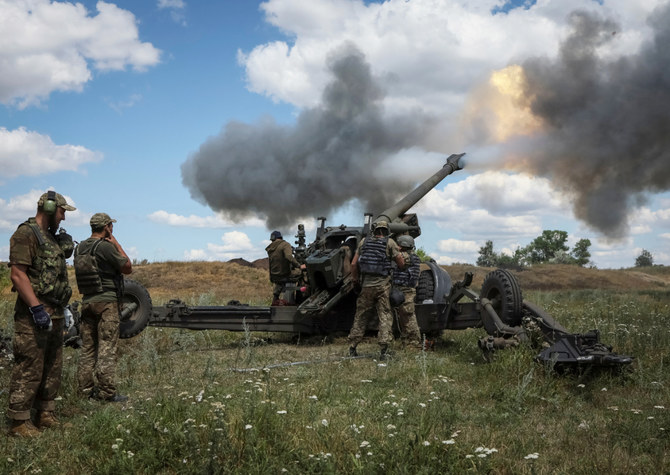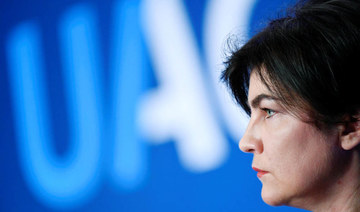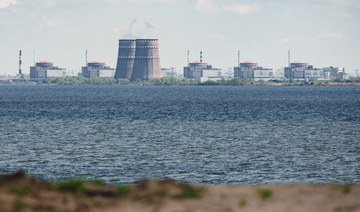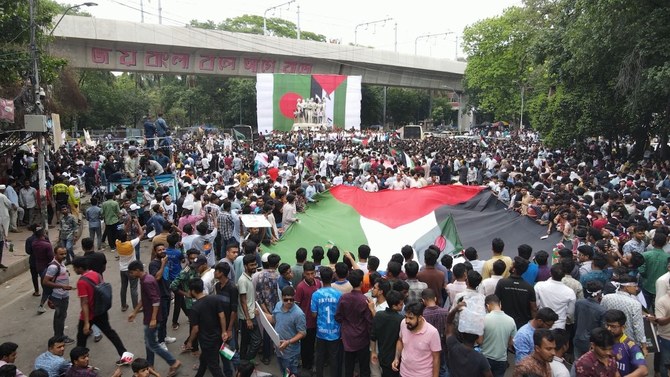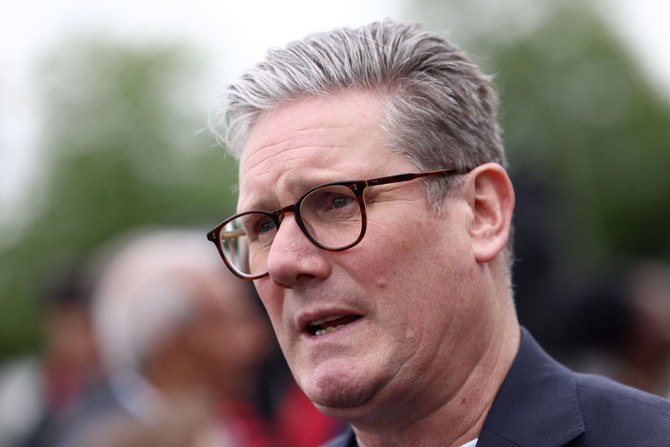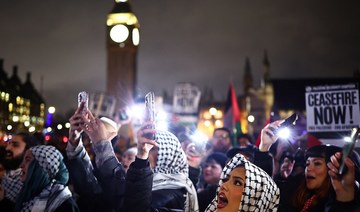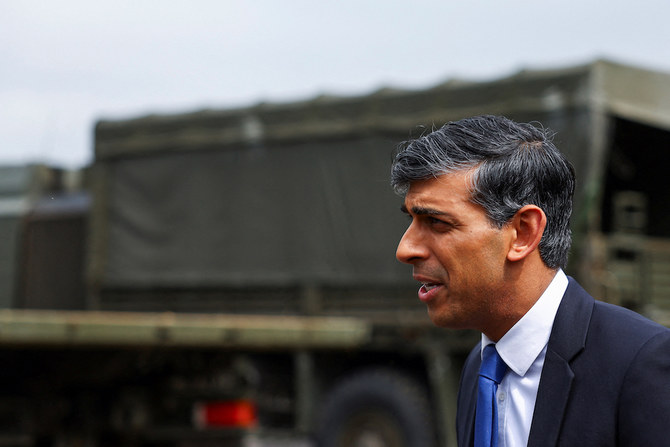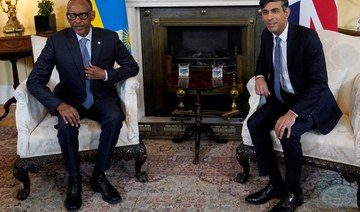KYIV, Ukraine: As Russia kept up its relentless shelling across the country, Ukrainian President Volodymyr Zelensky expanded the shakeup of his security services on Monday by suspending 28 more officials, a day after he dismissed two senior officials over allegations that their agencies harbored “collaborators and traitors.”
In his nightly video address, Zelensky said a “personnel audit” of the Security Service of Ukraine (SBU) was underway, and the dismissal of the 28 officials was being decided.
“Different levels, different areas of focus. But the reasons are similar — unsatisfactory results of work,” Zelensky said.
On Sunday, he had fired SBU chief Ivan Bakanov and Prosecutor General Iryna Venediktova. Zelensky, citing hundreds of criminal proceedings into treason and collaboration by people within their departments and other law enforcement agencies.
“Six months into the war, we continue to uncover loads of these people in each of these agencies,” said Andriy Smirnov, deputy head of Ukraine’s presidential office.
Analysts said the moves are designed to strengthen Zelensky’s control over the army and security agencies, which have been led by people appointed before the Russian invasion began on Feb. 24.
“In the conditions of a war, Zelensky needs leaders that are capable of tackling several tasks at the same time — to resist Russia’s intrigues within the country to create a fifth column, to be in contact and coordination with international experts, to do their actual job effectively,” Volodymyr Fesenko, a political analyst with the Penta Center think tank, told The Associated Press.
Bakanov is a childhood friend and former business partner of Zelensky, who appointed him to head the SBU. Bakanov had come under growing criticism over security breaches since the war began.
Venediktova won international praise for her drive to gather war-crimes evidence against Russian military commanders and officials, including Russian President Vladimir Putin, over the destruction of Ukrainian cities and the killing of civilians.
US State Department spokesman Ned Price, speaking to reporters in Washington, said when asked about the personnel changes that the two governments were in close contact.
“The fact is that in all of our relationships, and including in this relationship, we invest not in personalities. We invest in institutions and, of course, President Zelensky has spoken to his rationale for making these personnel shifts,” Price said.
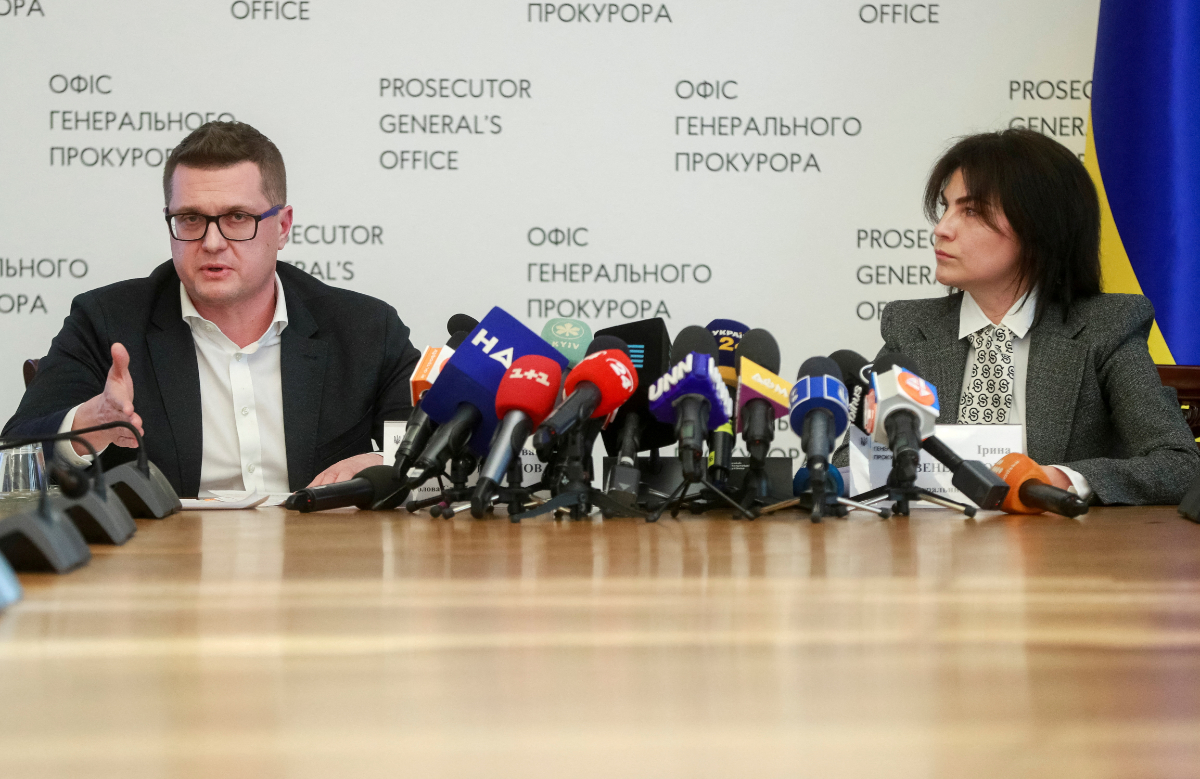
Ivana Bakanov, head of the Security Service of Ukraine, left, and Prosecutor General Iryna Venediktova. (REUTERS File Photo)
He said Washington would continue to work with Kyiv on war-crimes investigations and information sharing. Intelligence, he said, is “an important element of the assistance that we are providing to our Ukrainian partners in an effort to help them defend themselves.”
Zelensky appointed the first deputy head of the SBU, Vasyl Maliuk, to be acting head. Maliuk, 39, is known for efforts to fight corruption in the security agencies; his appointment was seen as part of Zelensky’s efforts to get rid of pro-Russian staffers in the SBU.
Fesenko said discontent with Bakanov and Venediktova had been brewing for a while, and it was possible that Ukraine’s Western partners pointed out the underperformance of the SBU and the prosecutor general’s office to Zelensky.
Meanwhile, Russia pressed forward with its missile and shelling attacks, which Ukrainian officials said were designed to intimidate the civilian population and create panic.
The commander-in-chief of the Ukrainian armed forces, however, said his troops had “stabilized the situation” on the front, largely thanks to Western deliveries of technically advanced rocket systems.
“It is complex, tense, but completely controllable,” Gen. Valeriy Zaluzhny wrote on Telegram after a phone call with the Chairman of the US Joint Chiefs of Staff, Gen. Mark A. Milley.
“An important factor contributing to our holding our defensive lines and positions is the timely arrival of the M142 HIMARS, delivering targeted strikes against enemy command posts, ammunition and fuel depots,” Zaluzhnyy said, referring to the light multiple-rocket launchers recently delivered from the US.
Ukraine’s Emergency Service said at least six people were killed by Russian shelling Monday targeting the city of Toretsk in the Donetsk region of eastern Ukraine. Toretsk was taken briefly in the Russian invasion of 2014, but Ukrainian forces ended up taking the city back.
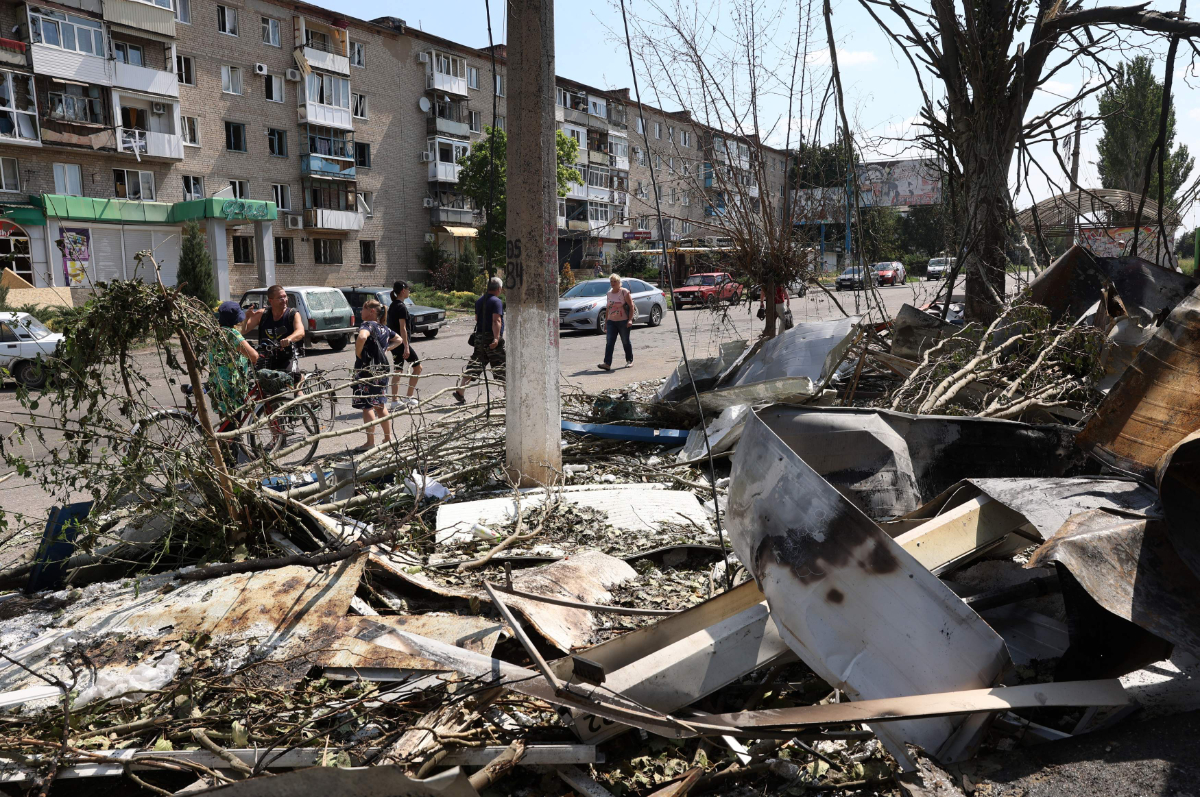
Residents inspect the rubble of a destroyed local market after a Russian missile strike in the town of Bakhmut, Donetsk region on July 16, 2022. (Anatolii Stepanov / AFP)
Donetsk governor Pavlo Kyrylenko said Russian shelling there is incessant. Four Russian strikes had been carried out on the city of Kramatorsk, he said, and he urged civilians to evacuate.
“We’re seeing that the Russians want to sow fear and panic,” Kyrylenko said in televised remarks. “The front line is moving, so civilians must leave the region and evacuate.”
Nearly 1,000 civilians were evacuated to Ukraine on Monday from Russian-held territories in the northern Kharkiv region, Gov. Oleh Syniehubov said. About a third of the region remains in Russian hands after Moscow’s troops overran it in April.
In Kyiv on Monday, a funeral was held at St. Michael’s Golden-Domed Monastery for a Ukrainian solider killed when his car hit a land mine near Izium last week. His family couldn’t bury him in their hometown in eastern Ukraine because it remains under Russian occupation.
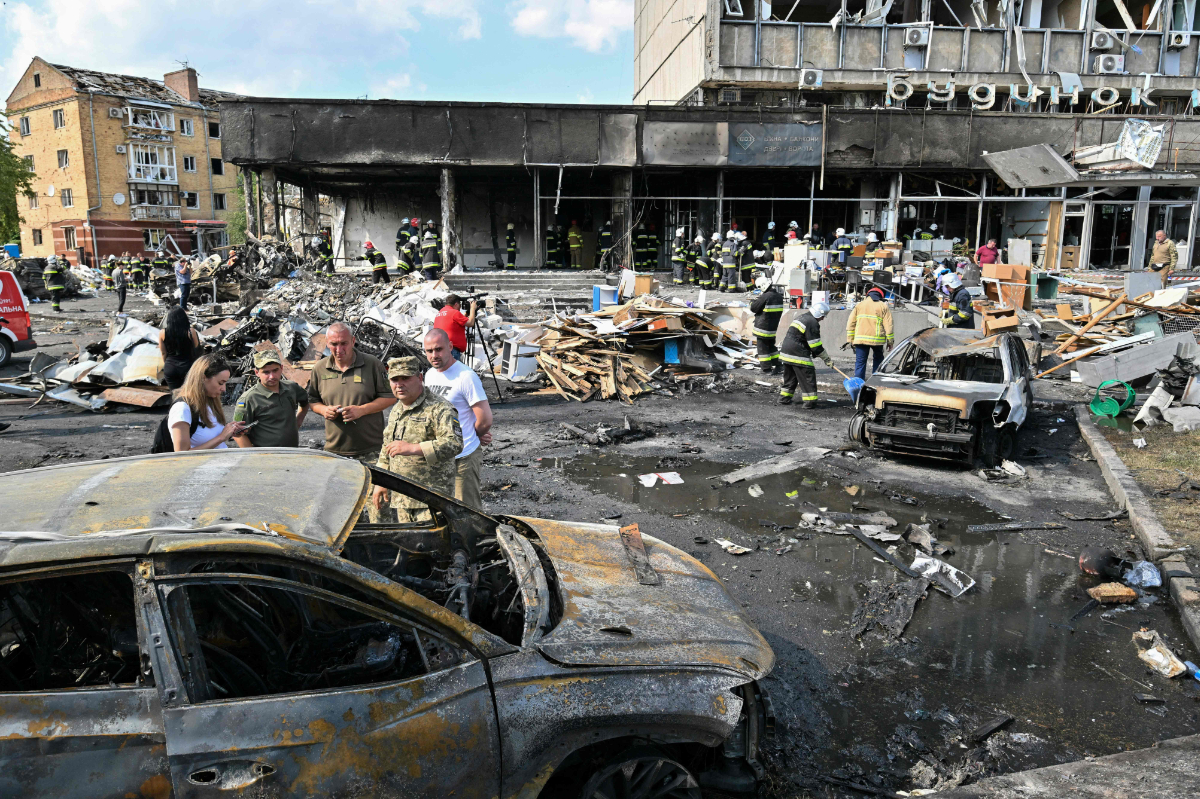
Firefighters take rubbles out of a damaged building following a Russian airstrike in the city of Vinnytsia, west-central Ukraine, on July 14, 2022. (Sergei Supinsky / AFP)
The cathedral was packed with mourners paying their last respects to Fanat, as the soldier was known. Whenever the priest paused, the voice of the soldier’s mother echoed in the church.
“We will love you forever and ever. We will miss you so much!” she cried, caressing the closed coffin. “Why do we need to live in this cursed war?”
In other developments Monday:
• Russian Defense Minister Sergei Shoigu inspected troops involved in the fighting in Ukraine and ordered the military to prioritize destruction of Ukraine’s long-range missiles and artillery, according to a ministry statement. It was not immediately clear when or where the inspection took place.
• UN Secretary-General Antonio Guterres’ spokesman said that “incrementally, there’s been a little bit more progress” on a proposed UN package deal that would enable millions of tons of Ukraine’s grain to be shipped from the Black Sea, and Russian grain and fertilizer to be sent to world markets without restrictions. Spokesman Farhan Haq said the UN chief spoke to Zelensky about the negotiations. A new round of talks could take place in Turkey later this week, said Turkish Defense Minister Hulusi Akar. Some 22 million tons of grain are stuck in Ukraine because of the war.
• Ukraine says some Russian forces have been using topographical maps from 1969 as they fight in the country’s east. The Ukrainian military’s general staff, citing the country’s internal security service, said the maps were used by Russian troops fighting around the Kharkiv but did not have buildings built since the early 1970s.
• Ukraine’s first lady, Olena Zelenska, met with Secretary of State Antony Blinken as she began a series of high-profile appearances in Washington. She is to meet with her US counterpart, Jill Biden, on Tuesday. Price said Blinken assured Zelenska of the United States’ commitment to Ukraine, and commended her for her work with civilians dealing with trauma and other damage from the war.



